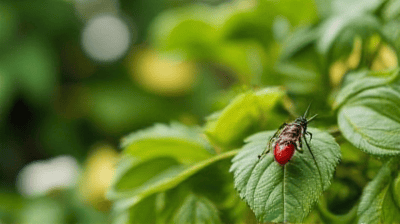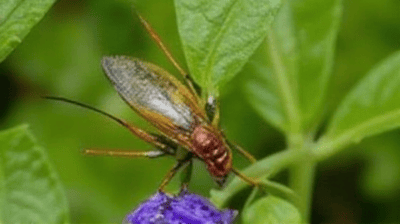
Understanding the Importance of Organic Pest Control
Environmental Benefits
Organic pest control methods focus on using natural solutions that have minimal impact on the environment. Unlike synthetic pesticides, organic approaches do not contribute to chemical runoff, which can pollute water sources and harm aquatic life. Additionally, organic methods often promote biodiversity by supporting beneficial insects and organisms that contribute to the overall health of the garden ecosystem.
Health Considerations
Many conventional pesticides contain harmful chemicals that pose risks to human health. By opting for organic pest control, you can cultivate a safe environment for you and your family. This is especially important for gardens that produce food, ensuring that the fruits and vegetables you grow are free from harmful residues.
Long-Term Solutions
Organic pest control emphasizes prevention and natural solutions, fostering resilient gardens that can better withstand pest pressures over time. By building healthy soil, promoting plant diversity, and encouraging beneficial wildlife, your garden becomes a self-sustaining system that requires less intervention in the long run.
Fundamental Principles of Organic Pest Control
Before we dive into specific organic pest control methods, it is essential to understand the key principles that underpin successful organic gardening:
1. Prevention
Prevention is the first line of defense against pests. Healthy plants are less susceptible to infestations, so implementing practices that promote plant health is crucial. Some preventive measures include:
- Choosing Resistant Varieties: Select plant varieties that are known for their pest resistance.
- Crop Rotation: Change the placement of your plants each season to disrupt pest life cycles.
- Companion Planting: Utilize companion planting strategies to deter pests or attract beneficial insects.
2. Monitoring
Regular monitoring of your garden is vital. By keeping a close eye on your plants, you can catch pest problems early before they escalate. Look for signs of pest damage, such as holes in leaves or discolored foliage, and inspect plants regularly.
3. Natural Control
When pests are detected, employing natural control methods is essential. This may include introducing beneficial insects, using organic sprays, or employing physical barriers. The emphasis is on using eco-friendly methods that are effective yet gentle on the environment.
4. Maintaining Biodiversity
Encouraging a diverse ecosystem in your garden can naturally reduce pest problems while promoting overall health. Biodiversity attracts beneficial insects, pollinators, and wildlife that contribute to pest control and plant health.
Effective Organic Pest Control Strategies
Now that we understand the principles of organic pest control, let's explore specific methods to deter and manage pests naturally.
1. Beneficial Insects
One of the most effective ways to control garden pests is by attracting beneficial insects that prey on them.
Ladybugs
Ladybugs are well-known for their voracious appetite for aphids, which can damage young plants. You can attract these helpful insects by planting flowers such as dill, fennel, and yarrow that produce pollen and nectar.
Lacewings
Lacewing larvae are predatory insects that feed on aphids, thrips, and spider mites. Encourage lacewings by planting a variety of flowering plants, especially those in the Asteraceae family.
Parasitic Wasps
These tiny wasps lay their eggs inside pest insects like aphids or caterpillars, effectively controlling their populations without harming your plants. Offering diverse flowering plants can attract parasitic wasps to your garden.
2. Organic Sprays
When pest populations become unmanageable, organic sprays can provide a solution.
Neem Oil
Neem oil is derived from the seeds of the neem tree and works as a natural pesticide. It disrupts pest life cycles by affecting their ability to feed and reproduce. Mix neem oil with water and a few drops of dish soap, then spray it on affected plants.
Insecticidal Soap
Insecticidal soap is effective against soft-bodied pests like aphids, whiteflies, and spider mites. You can purchase ready-made versions or create your own by mixing liquid soap with water. Apply it directly to the pests for best results.
Garlic Spray
Garlic is a natural pest repellent. Blend several cloves of garlic with water, strain the mixture, and spray it on plants to deter a variety of pests, including aphids, spider mites, and beetles.
3. Physical Barriers
Using physical barriers is an effective way to protect your plants from pests.
Row Covers
Lightweight row covers create a physical barrier between pests and plants while allowing light and moisture to reach the crops. Use them in early spring or late fall to protect seedlings from insects and cold weather.
Copper Barriers
Copper tape can be an effective deterrent against slugs and snails. Laying copper around the base of plants creates a barrier that slugs avoid due to a reaction with their slime.
Handpicking
For larger pests like caterpillars or beetles, handpicking can be a straightforward solution. Regularly inspect your plants and remove any visible pests.

4. Traps and Baits
Traps can help monitor and control pest populations in your garden.
Sticky Traps
Use yellow sticky traps to capture flying insects such as whiteflies, aphids, and fungus gnats. These traps are effective for monitoring pest populations and can be placed near affected plants.
Beer Traps for Slugs
Fill shallow containers with beer and bury them in the ground so that the rims are level with the soil. Slugs will be attracted to the beer, fall in, and drown, reducing their presence in your garden.
Homemade Fruit Traps
Create a simple fruit trap by combining ripe fruit with a little sugar water in a container. The enticing scent will attract fruit flies, which can then be removed from the garden.
5. Integrated Pest Management (IPM)
Integrated Pest Management is a holistic approach that combines multiple strategies for pest control, aligning with organic principles.
Monitoring
Regularly check your garden for signs of pests and beneficial insects. Keep records of pest populations and determine if thresholds for action have been reached.
Cultural Practices
Practices such as crop rotation, intercropping, and proper watering can enhance plant health and make them less prone to pest damage. These methods support a natural balance in your garden.
Chemical Controls (Last Resort)
If other methods fail and pest problems are severe, consider using organic pesticides as a last resort. Products like diatomaceous earth or neem oil can provide relief without harming the ecosystem.
Enhancing Garden Health
1. Soil Health
Healthy plants begin with healthy soil. Amending your garden soil with organic matter and compost not only nourishes plants but also supports beneficial microorganisms that contribute to soil health.
2. Plant Diversity
Plant a variety of species and incorporate flowering plants that attract beneficial insects and pollinators. High biodiversity reduces susceptibility to pests and diseases as it encourages a balanced ecosystem.
3. Healthy Watering Practices
Avoid overwatering your plants, as this can create favorable conditions for pests like fungus gnats. When watering, do so early in the morning to allow foliage to dry throughout the day.
4. Companion Planting
Utilize companion planting strategies to deter pests naturally. Certain plants can repel pests or attract beneficial insects. For example, marigolds repels nematodes, while basil can deter aphids and flies.
5. Regular Maintenance
Maintain a clean garden by regularly removing debris, weeds, and dead plant material that can harbor pests. Regular maintenance helps keep pest populations in check.
Conclusion
Organic pest control is not only effective but also promotes a healthier, more sustainable garden environment. By utilizing natural methods to deter pests, you can cultivate vibrant and productive plants while protecting the ecosystem. The strategies outlined in this guide—from attracting beneficial insects to employing organic sprays and physical barriers—will empower you to manage pests effectively and responsibly.
Remember that patience and observation are key components of successful organic gardening. Monitor your plants regularly, be proactive in your pest management approach, and remain flexible in adjusting your strategies based on the unique needs of your garden. By embracing organic pest control, you will nurture not only your garden but also a sustainable future for gardening practices.



